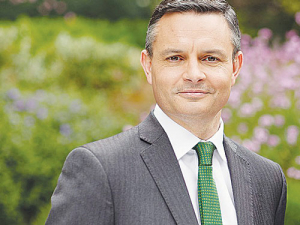Climate Change Minister James Shaw has released the Climate Change Adaptation Technical Working Group’s (CCATWG) recommendations.
The recommendations outline what New Zealand needs to do to adapt to the effects of climate change.
The report notes that agriculture is a significant contributor to the economy, but like many industries will struggle to cope with the pressures of climate change on its processes. It also notes that warmer temperatures may results in potential biosecurity threats.
The group says proactively planning how we can adapt to climate change urgently needs to weave into the work of every organisation, at every level, in every sector of New Zealand .
CCATWG co-chair, Dr Judy Lawrence, says that even if the world stopped all greenhouse gas emissions today, our climate would still change for centuries.
“Previous emissions take time to show their impact and are long lasting. We are already seeing the effects of climate change with sea level rise, more floods and hotter temperatures and we can expect further losses and damage.
“We need robust data to assess our risks and see where and who is most vulnerable and exposed. This will enable us to put a national plan into action which is independently monitored and reported on.
“Adaptation needs to be funded so that there are incentives for people and organisations to take adaptive action. All of this work needs to be supported by strong leadership,” says Lawrence.
“The group has conveyed its expectation that the government will put in place a coordinated set of measures. These will enable New Zealand to reduce its exposure and vulnerability to the changing climate.”
A full copy of the report can be found here.











